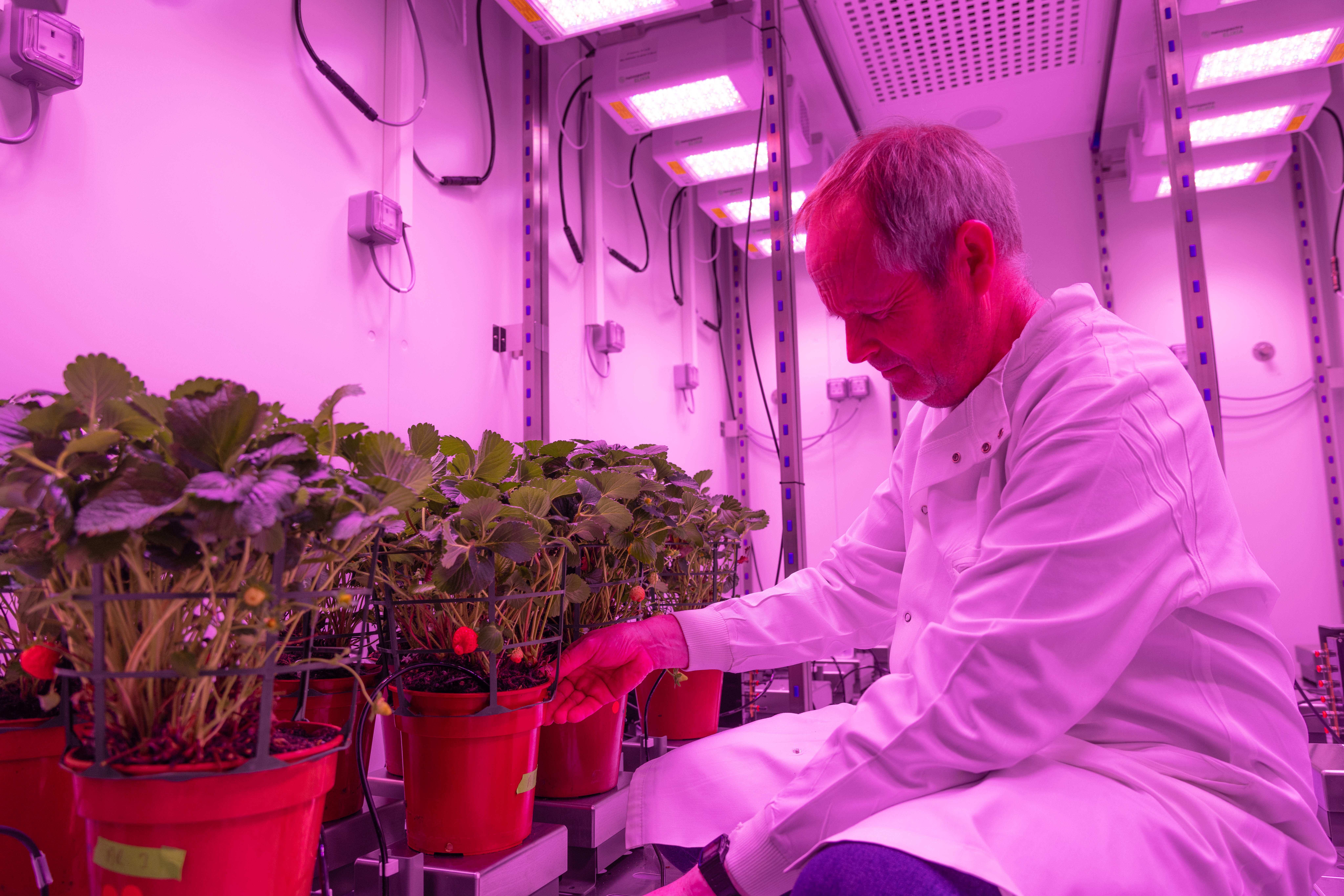UK university builds new lab to help develop climate-resilient plants
The £3 million facility at the University of Essex has an indoor field that replicates real environments anywhere on the globe.

Your support helps us to tell the story
From reproductive rights to climate change to Big Tech, The Independent is on the ground when the story is developing. Whether it's investigating the financials of Elon Musk's pro-Trump PAC or producing our latest documentary, 'The A Word', which shines a light on the American women fighting for reproductive rights, we know how important it is to parse out the facts from the messaging.
At such a critical moment in US history, we need reporters on the ground. Your donation allows us to keep sending journalists to speak to both sides of the story.
The Independent is trusted by Americans across the entire political spectrum. And unlike many other quality news outlets, we choose not to lock Americans out of our reporting and analysis with paywalls. We believe quality journalism should be available to everyone, paid for by those who can afford it.
Your support makes all the difference.A new laboratory where researchers aim to develop climate-resilient plants to ensure future food security has been built at a UK university.
The £3 million facility at the University of Essex has an indoor field that replicates real environments anywhere on the globe and suites that imitate a warming world, with researchers able to adjust CO2 concentration and temperature levels.
It has a commercial-standard vertical farm – described as a first for a UK university – and computer plant-scanning technology will also be used to monitor plants as they grow. Vertical farming is the practice of growing crops in vertically stacked layers.
Research at the centre, called the Smart Technology Experimental Plant Suite (STEPS), will be underpinned by AI and robotics that will help develop new ideas, technologies and strategies to predict how agriculture and the natural world are changing.
Biologist Professor Tracy Lawson, who is spearheading the project, said the facility places plant research at the university in a “unique position to be able to grow and select plants for tomorrow’s atmosphere today”.
“This cutting-edge lab will put us at the forefront of research into how we can help plants change and adapt to climate change, helping secure everyone’s future,” she said.
“This state-of-the-art facility will help the world cope with a growing population by ensuring future food security by developing climate resilient plants.”
The university said it is the first in the UK to have a commercial standard vertical farm and that the lab is the only one in the country to combine all the facilities.
It was funded in part by grant-giving organisation the Wolfson Foundation, which pledged £1 million.
Paul Ramsbottom, chief executive of the Wolfson Foundation, said: “We are in a race against time to futureproof agriculture against climate change, not just in the UK but globally.
“The University of Essex is leading the way in critical research and development to support innovation and sustainability in food production, and we are delighted to be funding the technology platforms that will help them achieve this.”
British agricultural technology company, Innovation Agritech Group (IAG), is collaborating with the university on the project and installed the vertical farm.
Kate Brunswick, business development director at IAG, described it as the “first commercial vertical farm within a UK university”.
“This milestone collaboration embodies our collective dedication to driving positive change in agriculture,” she said.
“We eagerly anticipate the transformative impact this facility will have on agricultural resilience and productivity.”
The lab will be officially opened on Wednesday.